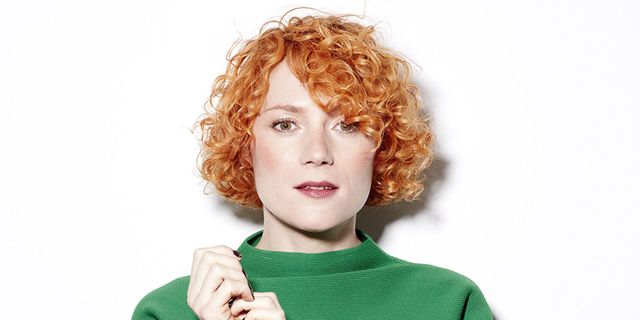When I think of Pride I see a joyous spectacle of glittering floats, brightly coloured balloons, rainbow flags, butch lesbians wearing chaps, bejewelled intoxicated drag queens, 80s popstars and pet pooches.
It's usually as camp as Christmas and then some. When it comes to expressing your sexuality or gender identity, Pride is the place where anything and everything goes. Quite rightly, Pride is huge.
My first ever experience of it was in Manchester in the 1990s. I was 17-years-old. It wasn't quite the spectacle I had envisaged due to the constant drizzle - but it wasn't without its charm.
Yet it was incredible, in a way that it opened my eyes to multiple forms of gender and sexual expression.
At the age of 17 I wasn't completely 'out' as being gay, but my motivation for exploring a damp, soggy northern Pride was to find more people who were like me.
I was different to any other boy I knew in my small village of Great Haywood, and I use the word 'different' because in the 1990s the word 'transgender' was next level, beyond imaginable. Who knew that was what I would become, and that I'd finally come to embrace that identity in 2012.
I was an effeminate, soft boy who liked to wear makeup and his mum's clothes. I was particularly drawn to her long blue maxi skirt to further my penchant for dressing up. And I spent Saturday afternoons with my girlfriends in Superdrug buying aubergine hair dye and black eye liner.
Predictably these character traits lead many to label me as gay. I was, after all, going into school with Vaseline dabbed on my cheekbones and eyelids for a dewy look thanks to Natalie Imbruglia's suggestion in a friend's copy of Just 17.
As a young boy, I knew that I was attracted to masculinity, however, I also felt somewhat connected to girls in a way that wasn't entirely sexual. I proceeded to have girlfriends all the way through high school and art college. Our relationships, although largely platonic, were nurturing, sisterly, sweet, kind and feminine. There was a naïve, playful nature to them. As teenagers we discovered our sexuality and our bodies together.
These early relationships allowed me to express my femininity because I was embraced by femininity. My girlfriends accepted who I was and never encouraged me to be more masculine.
I couldn't identify as a gay man during my teenage years largely because I hadn't seen or heard anyone remotely like me who was gay in the media. In the late 1990s we had Stephen Gately and Will Young. As much as I admired their honesty around their sexuality, I couldn't relate to a clean cut, boy next door image.
Flash forward to Manchester Pride, Canal Street in 1998.
I witnessed people that were very happy to flaunt, unashamedly flamboyant sexualised versions of themselves.
Having felt isolated in a small village for 18 years, I suddenly felt alive and connected. I'd found a place where I could breathe without fear, wear whatever I wanted and snog whoever I wanted. It was everything I'd hoped it to be.
Since my Pride initiation my sexuality has never been clear cut. I've had relationships with women as a man, relationships with men as a man and relationships with men as a woman. Labelling that as 'straight', 'gay' or 'bi' doesn't make sense to me, it's not that simple. Curious, fluid or simply 'sexual' seemed a more appropriate label.
With regards to my sexuality, I now happily embrace the label Queer. I use this label because it represents my view point, both personal and political. Since the 1990s we've come on leaps and bounds with media representation of gay, lesbian and trans profiles.
Kids today have role models like Frank Ocean, Cara Delevingne and Jazz Jennings who actively discuss their gender and sexual identities, promoting a positive message to anyone who wants to express the same desires within themselves – gay, straight, queer or whatever.
Every year Pride doesn't come without its struggles or yearly backlash. The event inevitably splits the community in half with either a 'love it' or 'hate it' stance.
Many view the event as nothing more than a commercial gathering for corporate advertising. With many more not feeling represented by the current pageantry and parade. The original meaning of Pride has lost itself under the weight of its own making. The message is unclear.
To me it represents the coming together of a community already fractured enough by discussions and conversations about the exclusivity of its members. And whilst we bicker about whether or not we should dot the I's or cross the T's perhaps we need to embrace each other the same way as generations did before.
Which I why I still think Pride is relevant today.
It's a place where one can feel connected and part of a global community of people.
Like I said: Christmas in July, just more camp.
This article was originally published in 2027.













